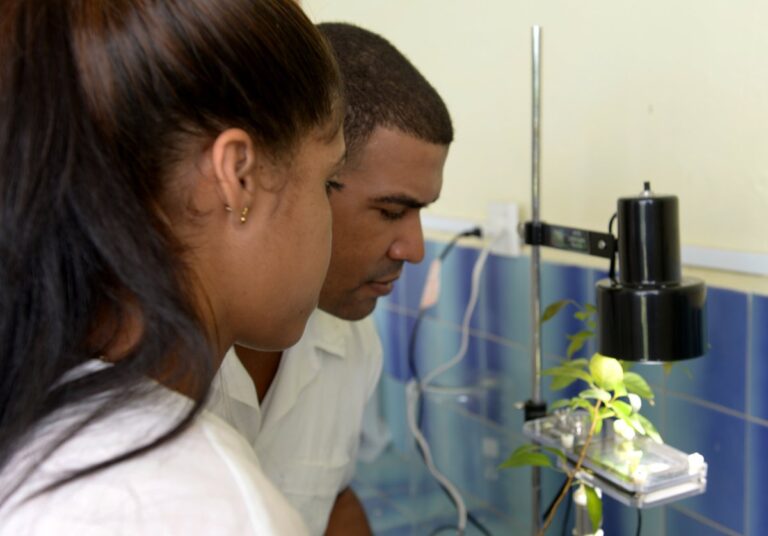 During 2023, the Guantanamo scientific community contributes to the development of projects, the use of technologies and sustainable practices in different programs, which will benefit the province at medium and long terms, in pursuit of greater socioeconomic progress.
During 2023, the Guantanamo scientific community contributes to the development of projects, the use of technologies and sustainable practices in different programs, which will benefit the province at medium and long terms, in pursuit of greater socioeconomic progress.
The implementation of the strategies that make up the State Plan to Confront Climate Change (Task Life) is one of the essential missions for these professionals, together with actors from other sectors, among which the comprehensive management of natural resources stands out. , mainly in the prioritized areas of Baracoa and the southern coastal strip.
Likewise, territorial reorganization plans are distinguished to avoid construction in areas at risk of coastal or river flooding, hydraulic works to improve the water supply, among other actions aimed at preserving human life, resources and ecosystems.
Also during this year, six units of the Palmares extra-hotel branch in Guantanamo were declared this year as centers free of substances that deplete the ozone layer due to the use of climate and refrigeration equipment that does not produce toxics, which cause a negative impact on biodiversity and nature in general.
Likewise, the province also stands out at the national level for the results of the studies on Dangers, Vulnerabilities and Risks and such as that of Epizzotia in terms of diseases caused by animals, a project led by CITMA in its close link with the delegation of the Agriculture.
On the other hand, scientific professionals in Guantanamo are taking part in the photovoltaic park program, in which they give the licenses, authorizations and valuable recommendations, in favor of reducing the consumption of fossil fuels and generating clean energy that does not affect the environment.
Translated by Liubis Balart Martínez